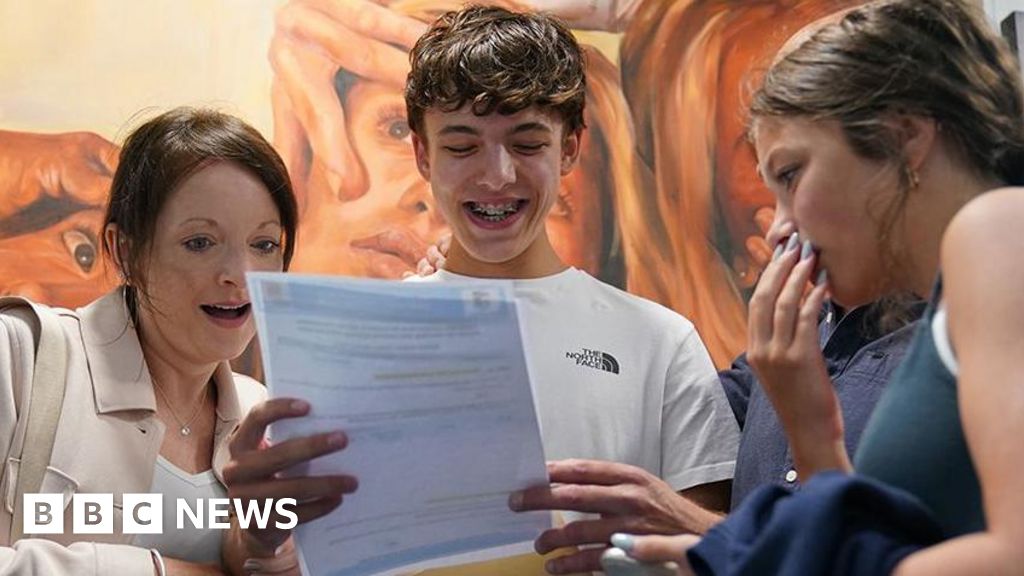World
Top-grade unis soak up students, Ucas data shows

 PA Media
PA MediaUniversities asking for the highest entry grades have so far accepted 8% more students this year than in 2023.
The Universities and Colleges Admissions Service (Ucas) data suggests universities are being more flexible about students’ grades.
Many universities are keen to fill places on their courses, to shore up their finances as the number of post-graduate students has fallen.
But the universities with the lowest entry grades have seen a 4% fall in the number of students accepted compared with last year.
The latest Ucas update on university admissions shows just how fast A-level, T-level and BTec National students who received their results last week have been accepted, with 10% fewer students free to be placed through clearing than this time last year.
In England, 40% of universities have warned they face a financial deficit this year, according to the regulator, the Office for Students.
The new chairman of the body, Sir David Behan, told BBC Radio 4’s Today programme the resilience of universities had been tested by a number of shocks, including tuition fees being frozen at £9,250 in England and a drop in the recruitment of international post-graduate students after visa changes.
As international students pay much higher fees, they are an important source of income.
But since January, post-graduate students coming to the UK have no longer been able to bring their partner and children, denting recruitment from key markets such as India and Nigeria.
Sir David said the pressure could lead to university education being “reimagined”, with more online learning, shorter courses and more students choosing to live at home.
Most students already choose a university within 60 miles of home, according to previous research from the Sutton Trust, and at some universities, such as Sunderland, most undergraduates are “commuter students”.
Financial failure
Sir David said there was a “significant financial challenge” for England’s universities.
Many institutions have merged or closed courses and cut the number of academics, to put their finances on a sustainable footing.
Similar plans are being implemented almost everywhere – from the University of Coventry to the University of Lincoln.
And a much smaller number of universities, possibly as few as three or four, are thought to be facing the risk of complete financial failure.
The Office for Students, which has responsibility in England for protecting the interests of students, recently advertised for advisers to help it manage any financial crises.
The government has told the regulator to concentrate on the financial stability of universities as a top priority.
And although Education Secretary for England Bridget Phillipson has warned universities not to expect bailouts, the government has promised to look at the future of university funding.










